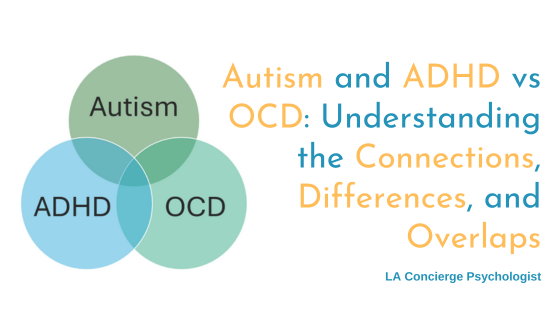ADHD or not, time management can be a big struggle for people. With real-life interruptions and alluring distractions, it can sometimes feel impossible to take charge of your work. Believe or not, five simple tips can make a huge difference in your ability to effectively manage your time.
1. Contextualize Your Work
Not valuing what you have to do makes it hard to do it. Imagine someone telling you to count to a million but never telling you why. How likely are you to take time to actually do it? Now, imagine someone tells you to count to a million and tells you that, when you finish, you’ll get a promotion. Bet you’re blocking out several hours to count to a million, now! Being able to connect your work to your personal values or your “big picture” will help motivate you to follow-through.
2. Prioritize Your Tasks
You know best what works for you. Some people do well if they get all of the smaller tasks out of the way because it starts to build momentum for accomplishing things and/or it feels good to check things off the list. Others like tackling the big stuff first and finishing off easy with the small tasks. Just be sure that you’ve reviewed all of your tasks and actually prioritized them in some fashion.
Oftentimes, the mere act of reviewing the tasks helps because it gives you a lay of the land. Imagine trying to build something but not knowing what the end product is— it makes it difficult to know how much time you need to block out to complete building it, if you’re close to finishing it, etc.
Want a systematic way of prioritizing your tasks? Read my article on using an important vs urgent grid to help prioritization.
3. Schedule, Schedule, Schedule
Stuff that gets scheduled is more likely to happen; that’s just a fact of life. Do your future self a solid and schedule in all the tasks that you need to accomplish. Schedule the tasks that are prioritized as more important first, then find time for the other tasks. It’s always better to block out more time than you actually think you’ll need— better to find yourself ahead of schedule than behind, right?
If you have especially large tasks to accomplish, I strongly recommend breaking those down into smaller tasks that are easier to schedule in. Writing an important presentation in two 6 hour chunks seems incredibly overwhelming. It probably feels better to see one hour dedicated to finding graphics for the presentation, another hour dedicated to outlining the presentation, etc.
Many people schedule and then forget an important part of scheduling: doing the work. That might seem silly to say, but that’s the downfall of most people’s schedules. So be sure that you are realistic with how you’re scheduling yourself, use what you know about your work habits to effectively create a schedule (e.g., better to schedule harder tasks in the morning, leave the easy stuff for night), and have the proper systems in place to remember when you’re scheduled to do stuff (e.g., setting phone reminders, having your planner readily accessible wherever you are).
4. But Be Flexible (Because Life Happens)
Scheduling is the best laid plan, but we all know that life happens. You might get a cold, there might be a family emergency, or you get in a fight with someone and just need a few hours to recalibrate. If something happens, you need to be flexible and rearrange your schedule to accommodate life. That might mean pushing off the less urgent tasks to make room in your schedule to finish the higher prioritized items. It might mean doing an “average” job on something you really wanted to knock out of the park, cancelling your happy hour with friends, or asking people for help in getting stuff done.
5. And Save Time for Self-Care
One of the biggest mistakes people do when they first start scheduling is forgetting to save time for self-care. You are a human being, not a robot. Your brain needs rest between tasks. Without the breaks, you’ll become less productive. A fresh brain might finish a task in 30 minutes, and a tired brain might take an hour to finish the same tasks. Better off taking the 30 minute break, be refreshed, and finish the task in the remaining 30 minutes!
You also need time for sleeping, eating, exercising, socializing, and relaxing. If you don’t take care of yourself and try to be a robot, you are going to get overwhelmed, burnt out, and ineffective. That’s a surefire way to fall off the productivity bandwagon and go back to inefficiently handling your work.
You might be thinking, “Ugh, I’ve tried all of these already, and it doesn’t work!” If that’s you, I invite you to reflect on how you actually implemented the tips. It’s common for people to try these tips for a week, struggle with following-through with it all, and then to give up. Was that you? Give it another go, but, this time, realize that it’s a process to build time management skills and give yourself enough time to start a new habit.
Do these tips sound helpful, but you’re struggling to make them work on your own? Send us a message or book a free 20 minute consultation call with Dr. Barajas or Dr. Goldman to see how we can help you build long-lasting time management skills.




